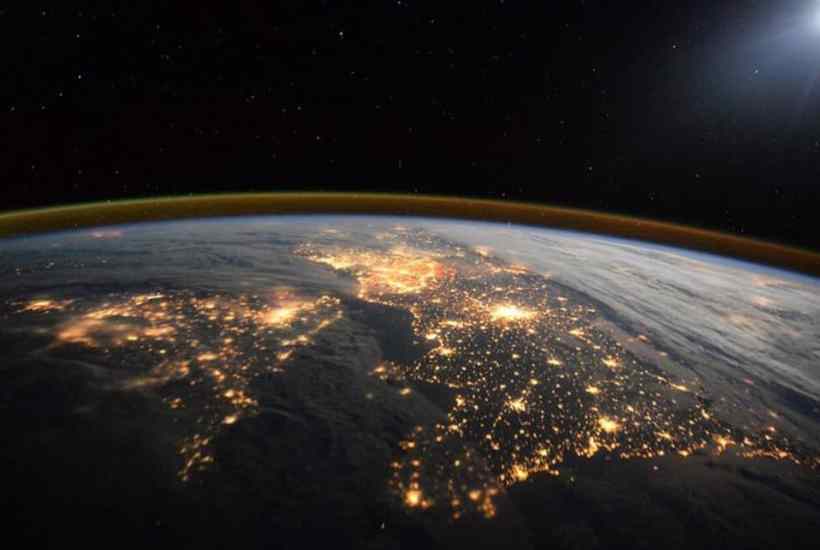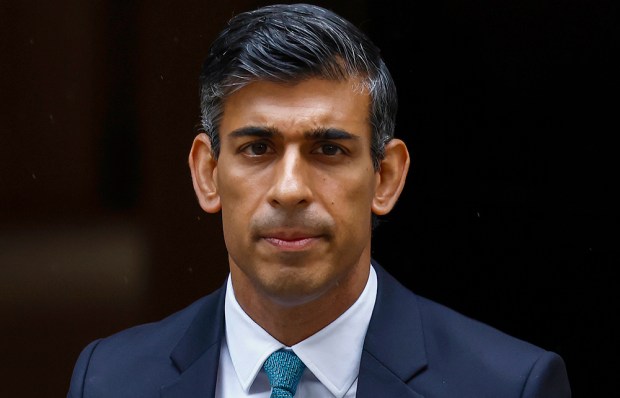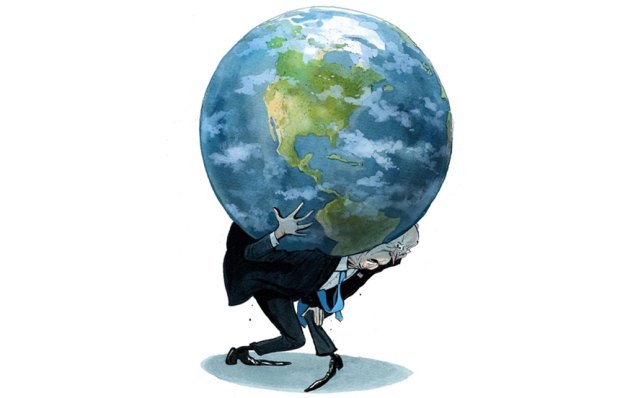Between 1992 and 2002, the UK experienced a period of benign economic growth. Known as the Nice (non-inflationary constant expansion) decade, it feels like a very long time ago. According to the Bank of England’s latest forecast, Britain today faces the opposite: high inflation and a recession. This grim prediction is why the Tory leadership contest is so grouchy; in these circumstances, there are no good fiscal options, only least-worst ones.
The world economy veers from one emergency to another, with the frequency of crises having intensified since 2008 and, particularly, since Covid. Lockdowns and pandemic disruption were rapidly followed by the Russian invasion of Ukraine, which is causing havoc in energy markets.
Added to this is the growing concern that the Russian invasion may make the Chinese more inclined to attempt a blockade of Taiwan. This would cause even more disruption than the Russia-Ukraine war, given that the island produces the majority of the world’s most advanced microchips, and it would hugely increase the risk of direct conflict between China and the US.
One of the foundations of the Nice decade was globalisation. Today, however, we are living through a period of de-globalisation. Covid has left countries keener for shorter supply chains and self-sufficiency in medical supplies. The current energy crisis is having a similar effect; even once the war is over, no democracy will want to continue relying on Russian oil and gas and there will be a far greater push for domestically generated energy. At the same time, the US Congress has just passed a bill allocating $280 billion (£231 billion) in support of the domestic production of semiconductors and scientific research, as the country tries to ensure it can out-compete China technologically.
Yet the Tory leadership contest has barely addressed the question of how the UK economy should respond to these global trends. Instead, the debate has focused on what each camp would do this autumn to help households with soaring energy costs (the price cap is expected to exceed £3,500 from October and £4,200 in January).
Rishi Sunak, with whom I have been friends for decades, has been clear that he would provide further direct support before the first price cap rise. In contrast, Liz Truss has been reluctant to say this, criticising ‘handouts’ and instead emphasising her plans to reverse the National Insurance increase and take the green levies off energy bills. But what has been largely absent from the conversation is the risk of insufficient energy supplies this autumn and winter. The Cabinet Office minister Kit Malthouse has already said that hospitals have been advised to check that their generators are functioning and their diesel tanks are full.
Covid showed that in a crisis, borders will reassert themselves: France requisitioned stock from a Swedish mask manufacturer which was meant to be going to Spain and Italy. The US wouldn’t allow vaccines to be exported to Canada until it was confident it had enough for its own use. In the coming months, something similar may well happen with energy. Already, Norway has said that it will prioritise refilling reservoirs – which can be used to power hydro-electric turbines this winter – over exporting energy. This is particularly concerning for the UK, which is a net importer of energy.
The National Grid assures us there won’t be blackouts this winter, but even on its own numbers, there is not much of a buffer in place. If energy supplies from the Continent had to be rationed, things would become far too close for comfort. Given how tight supplies will be in Europe this autumn, with Putin restricting the flow of Russian gas and half of France’s nuclear power stations offline, this is only too likely. It was revealed this week that the government is, in fact, already contingency planning for blackouts.
Part of the UK’s problem is that it has no gas storage. At the moment, the country is receiving record shipments of liquefied natural gas and pumping them to Europe for storage. It is clear that the decision to close the Rough storage site off the coast of Yorkshire in 2017 was a mistake. Centrica claimed it wasn’t economically viable but the assumption at the time was that it would always be possible to buy gas on the open market so there was no need for storage. This winter may well expose the folly of that view. It would have been better to have maintained the facility as a precaution.
The need for future resilience should now inform the country’s energy policy. There should be a much greater emphasis on security of supply and domestic generation than before. This could point us in the direction of nuclear power, though this would hardly be a quick fix. At the same time, the UK should bring in an emergency insulation programme that would both reduce energy demand and help keep consumer bills down.
The increasing tension between Beijing and Washington also proves the case for reducing UK dependence on China. China’s aggressive response to Nancy Pelosi, the Speaker of the US House of Representatives, visiting Taiwan is another reminder of how easily tensions could spill over. The Chinese live fire exercises were designed to show how they could blockade the island. In those circumstances, the UK should sign up to sanctions designed to hit Beijing economically. But to avoid the repercussions of such measures, we need to start considering alternative sources of supply for various goods now.
There is another consequence of the fact that the pace of globalisation is, at the very least, slowing. Globalisation and the integration of China into the world economy provided a deflationary shock which led to interest rates remaining low. The more decoupling there is between China and the West, the more likely it is that inflation increases, leading, in turn, to higher interest rates. The idea that they will stay low for longer and so borrowing more is a fairly safe option, which was so in vogue just a year ago, now looks like a much more dubious proposition.
How the new prime minister responds to these changing circumstances will be just as significant, if not more so, in determining the success of his or her premiership as the questions that have dominated this contest so far.
Got something to add? Join the discussion and comment below.
Get 10 issues for just $10
Subscribe to The Spectator Australia today for the next 10 magazine issues, plus full online access, for just $10.
You might disagree with half of it, but you’ll enjoy reading all of it. Try your first month for free, then just $2 a week for the remainder of your first year.















Comments
Don't miss out
Join the conversation with other Spectator Australia readers. Subscribe to leave a comment.
SUBSCRIBEAlready a subscriber? Log in